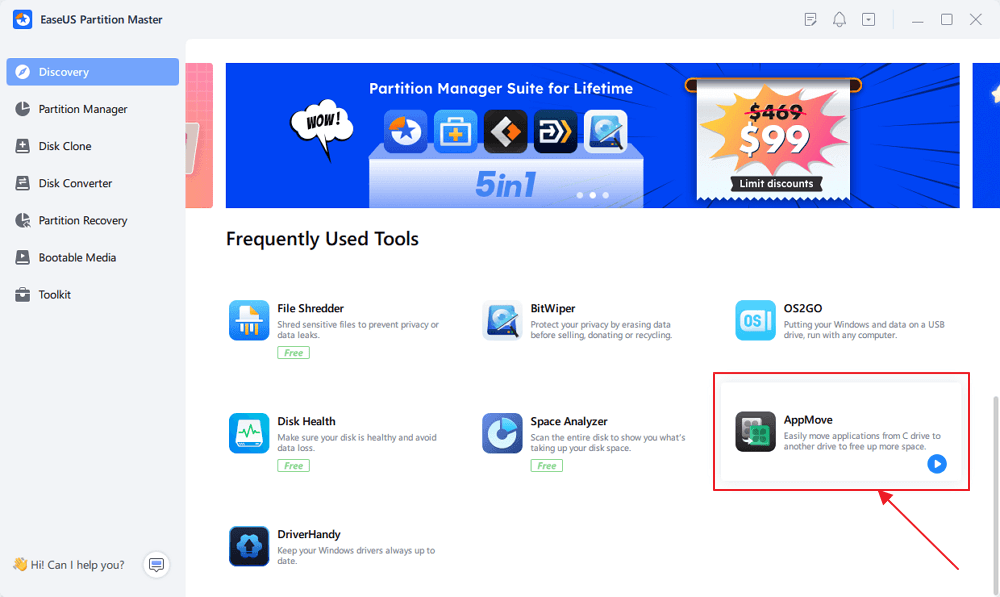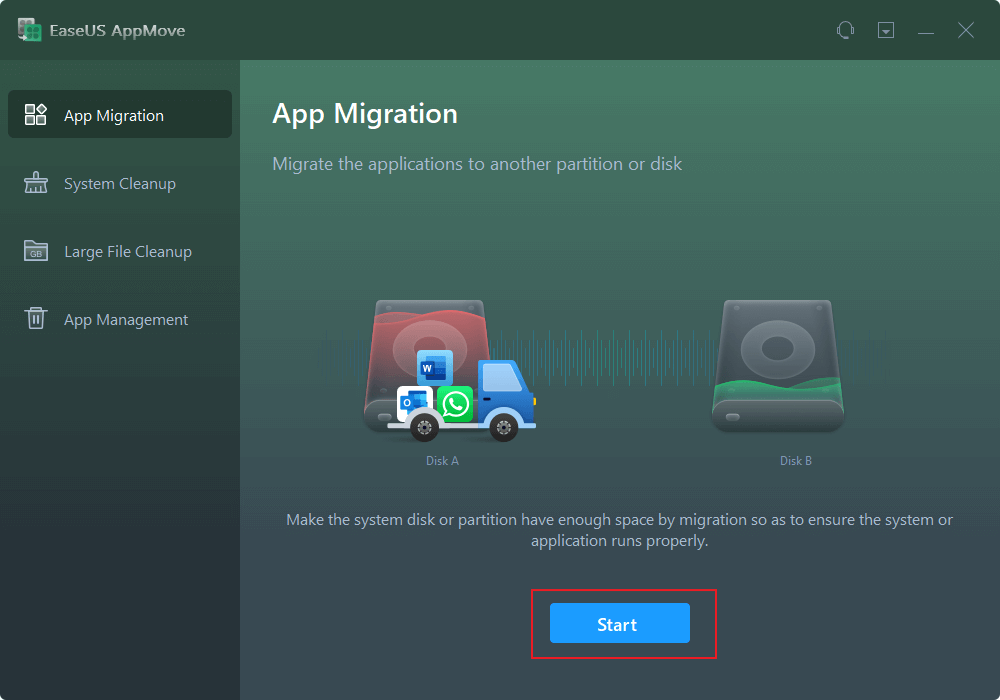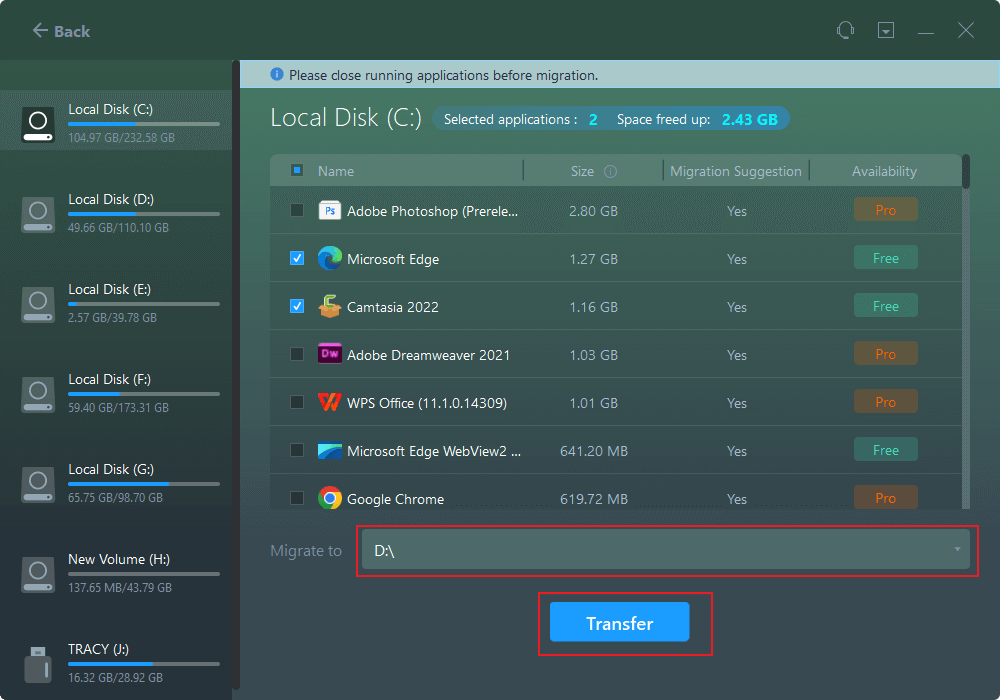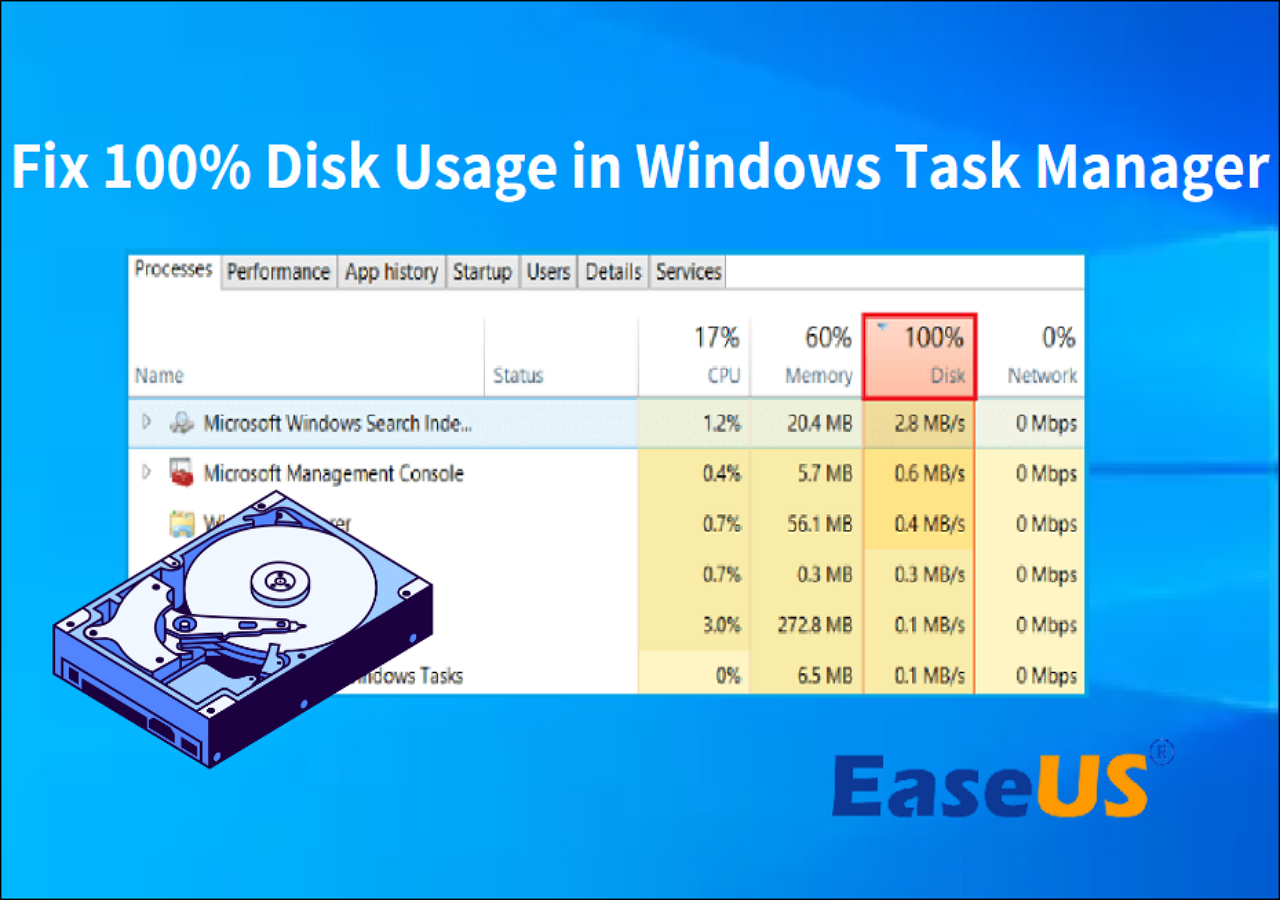Page Table of Contents
About the Author
Hot Topics
Updated on Apr 28, 2025
- How to Use D Drive in Windows 10 - 3 Efficient Ways
- Why Do We Need to Use D Drive Windows 10?
The C-drive is known as the primary drive of Windows 10 computers. Whatever file we download or install on the computer, the default storage path lies in C: drive. It may cause issues like C drive to run out of storage. On the other hand, the D drive is another hard drive partition used to store user-generated content.
EaseUS will teach you three efficient solutions for how to use D drive in Windows 10. Take valid action if you find the D drive has ample space but the C drive has insufficient storage. It will manage your disk space and prevent your system from crashing or failing.
View the Necessary Information on How to Use D Drive on Windows 10:
| ⏱️Duration | 3-6 minutes of reading |
| ⛏️Required Tool | Disk Management Tool – EaseUS Partition Master |
| 🚩Goal | Better manage the space on the D drive and relieve pressure on the C drive |
| 👩🏼💻Who Need It | Windows beginners whose C drive is full but D drive is empty. |
| ⭐Solutions |
1️⃣Solution 1. Allocate Free Space on D drive - Quick & Easy 2️⃣Solution 2. Move Large Program Installed on C to D Drive 3️⃣Solution 3. Use D Drive by Changing the Default Drive for Downloads |
How to Use D Drive in Windows 10
To use the storage of the D drive, you may frequently delete unnecessary files and move essential files from the C drive. Well, this section will teach you three easy solutions for how to use D drive in Windows 10. Keep reading to learn comprehensive solutions along with step-by-step instructions to proceed.
Solution 1. Allocate Free Space on D drive
Allocating the free space on D drive can significantly benefit your computer's performance and storage management. EaseUS Partition Master offers a quick and efficient "extend partition" feature to allocate free space in the data partition. It is an all-inclusive disk management application that enables users to partition their hard disks in multiple ways. In addition to other functions, this utility allows users to format, create, delete, and merge partitions.
A few clicks can increase the space of your C drive for a well-organized file system. The straightforward functioning and friendly interface reduce the chance of data loss and lead the faster operations. Download this tool and follow these steps to allocate free space on D drive in minutes.
Step 1. Locate the Target Partition.
Go to Partition Manager, locate the target partition and select "Resize/Move".

Step 2. Extend the Target Partition.
Drag the partition panel rightward or leftward to add the unallocated space into your current partition, or you can click click "fill in all unallocated" to allocate all space to the target partition. Then, click "OK" to confirm.

Extra Option: Get Space from Another Drive
If there is not enough unallocated space on your disk, right-click on a big partition with enough free space, select "Allocate space".
Then select the target partition that you want to extend at the allocate space to column.

Step 3. Execute Operations to Extend Partition.
Drag the dots of the target partition into the unallocated space and click "OK".

Then Click the "Execute Task" button and click "Apply" to keep all the changes.
Solution 2. Move Large Program Installed on C to D Drive
If you are a Windows 10 user, you may know that the default location to install the program is C: drive. You may have seen program folders in the C-drive, such as Program Files for 64-bit or Program Files (x86). These files are essential to run an application, and things stop working if you directly move these folders somewhere else. However, the size of these apps partially increases after a long time, slowing down the system.
We recommend that you use EaseUS Partition Master to migrate large programs easily. The tool provides an AppMove feature that helps you easily migrate C drive programs to D drive in one click to free up space.
Step 1. Launch EaseUS Partition Master, go to the Discover section and click "AppMove" to activate this feature.

Step 2. Once AppMove opens up, click "App Migration" and click "Start" to begin the app migration process.

Step 3. Select the installed applications, big programs, and even games you want to move, then browse to select a target drive or partition as the destination next to the Migrate to section. Then, click "Transfer" to begin transfer your apps.

In addition to these two features, EaseUS Partition Master offers more features for managing disks and computers, such as:
- Resize/Shrink C drive on Windows
- Repartition a hard drive
- Partition Western Digital Hard Drive
- Free up space on HDDs and SSDs
- Format an external hard drive that is not visible
Download EaseUS Partition Master, and you can experience more great features for free!
Solution 3. Use D Drive by Changing the Default Drive for Downloads
Most of the material we download from the internet frequently remains in the download folder on the C drive. You can set D drive as a default location to store the downloaded items. It will save a lot of space in the C drive, and your system will run smoothly. Here are some simple steps to help you learn how to use D drive for downloads rather than C in Windows 10.
Step 1: Press the "Windows" key and select the gear icon to open "Settings."
Step 2: Select "System" from the left panel and Click "Storage."
Step 3: Choose the "Change Where New Content Is Saved" option.

Step 4: You will encounter a list of storage categories, such as pictures, documents, etc. Navigate the "Download" option and choose your desired location as "D" drive.
Why Do We Need to Use D Drive Windows 10?
D drive generally stores personal data, such as movies, pictures, music, documents, etc. It helps to manage the personal and working data of users. A D drive also allows users to create backups and prevent data from failure. Additionally, the C drive contains the operating system and other essential system files. In certain circumstances, when the C: drive has insufficient space, users can use D drive as a storage alternative. It helps prevent the system from becoming unresponsive and slow.
Here are some quick points that help you understand the need for D drive:
- Storage organization: Distinguishes system files from data.
- Data protection: Prevents system crashes by protecting crucial files.
- System efficiency: Reduces the load on the C drive, making the system more efficient.
- Backup location: The best place to keep system backups and images.
- Software installation: It provides a great location option to install non-OS applications.
Anyway, using the D drive is very effective when running out of space on the C drive. By using a professional disk management tool - EaseUS Partition Master, allows you to take fuller advantage of each drive. If you like this tool and the guide in this article, you can click the social buttons below to share it with more people in need.
Conclusion
The main goal of this post is to provide you with an in-depth understanding of how to use D drive in Windows 10. This post has covered three effective approaches to help you successfully manage your D drive, each with step-by-step instructions and recommended third-party software.
One standout solution that we highly recommend is EaseUS Partition Master. The tool is applicable to make effective use of unallocated space, the creation of new partitions, and the merging of existing partitions. It also creates painless backup and data transfer, allowing users to get the most out of the D drive. Thanks to its intuitive UI and powerful functionality, it is the best option for maximizing the storage space on your D drive.
FAQs About How to Use D Drive in Windows 10
You might have several questions about how to use your D drive in Windows 10 if you are looking to manage your storage. This FAQs section will address common queries related to this topic.
1. Can I use D drive instead of C drive?
Unfortunately, using the D drive instead of the C drive is not feasible. This restriction results from the fact that the Windows operating system, which contains crucial system files, is installed by default on the C drive. While you can use the spare space on the D drive to store important information, we do not advise utilizing it as your primary drive instead of the C drive.
2. How to create a D drive in Windows 10?
To create a D drive in Windows 10, create a new partition and name it a D drive. To do so, go to the "Search bar" and type "Disk Management." Click the right mouse button on any free space and choose "New Simple Volume." Follow on-screen instructions to create a new partition and assign it a drive letter as D.
3. Why is the D drive not showing up in Windows?
If Windows does not recognize the D disk, it could be due to the following reasons:
- The D drive has no assigned drive letter.
- The D drive is hidden or not initialized.
- There is no allocated partition as the D drive.
You can know more detailed reasons and solutions by clicking D drive not showing up in Windows.
How Can We Help You
About the Author
Updated by Tracy King
Tracy became a member of the EaseUS content team in 2013. Being a technical writer for over 10 years, she is enthusiastic about sharing tips to assist readers in resolving complex issues in disk management, file transfer, PC & Mac performance optimization, etc., like an expert.
Cici is the junior editor of the writing team of EaseUS. She accepted the systematic training on computers at EaseUS for over one year. Now, she wrote a lot of professional articles to help people resolve the issues of hard drive corruption, computer boot errors, and disk partition problems.
Product Reviews
-
I love that the changes you make with EaseUS Partition Master Free aren't immediately applied to the disks. It makes it way easier to play out what will happen after you've made all the changes. I also think the overall look and feel of EaseUS Partition Master Free makes whatever you're doing with your computer's partitions easy.
Read More -
Partition Master Free can Resize, Move, Merge, Migrate, and Copy disks or partitions; convert to local, change label, defragment, check and explore partition; and much more. A premium upgrade adds free tech support and the ability to resize dynamic volumes.
Read More -
It won't hot image your drives or align them, but since it's coupled with a partition manager, it allows you do perform many tasks at once, instead of just cloning drives. You can move partitions around, resize them, defragment, and more, along with the other tools you'd expect from a cloning tool.
Read More
Related Articles
-
How Can I Merge Disk 0 and Disk 1 in Windows 11/10
![author icon]() Brithny/2025/04/28
Brithny/2025/04/28 -
How to Tell If Windows Is GPT or MBR [Your Guide Is Here]
![author icon]() Tracy King/2025/04/28
Tracy King/2025/04/28 -
How to Clone Partition or Hard Drive with Partition Copy Software
![author icon]() Daisy/2025/04/28
Daisy/2025/04/28 -
Top 4 Best Windows 10 Password Reset Tools 2025 Review🏆
![author icon]() Oliver/2025/04/28
Oliver/2025/04/28
Hot Topics
EaseUS Partition Master

Manage partitions and optimize disks efficiently








